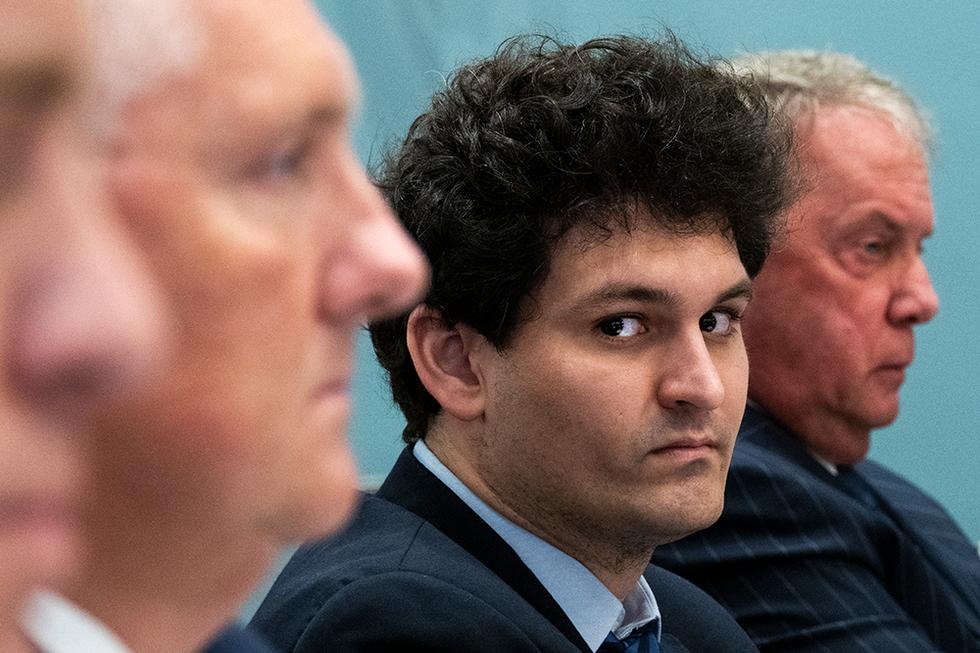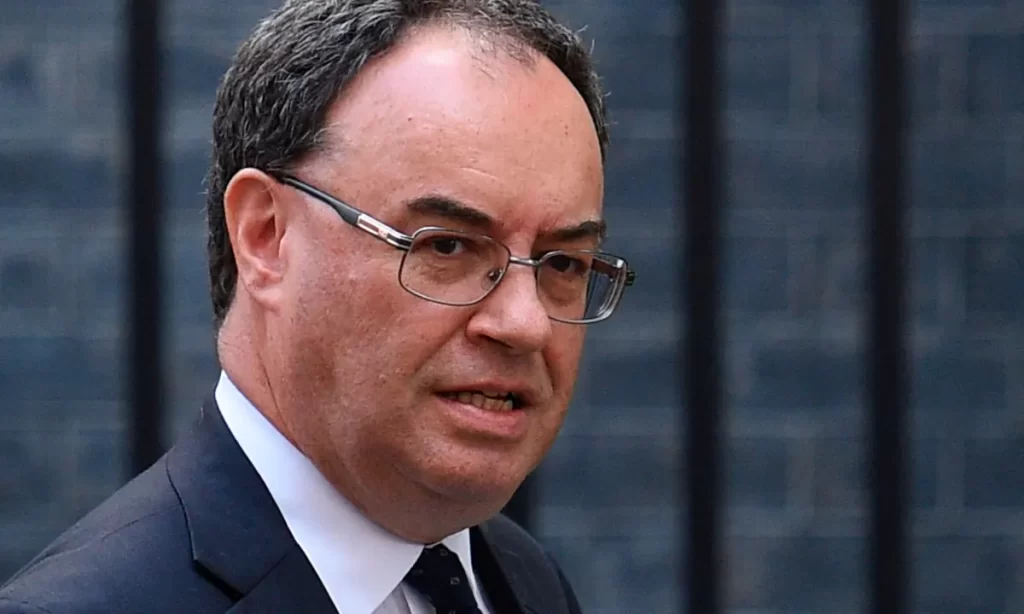Miami, Florida, 24th January, 2023, Chainwire
Genesis Coin Inc, the first and largest Bitcoin ATM software platform worldwide announced today that they have been acquired by early Bitcoin ATM pioneers Andrew Barnard and Doug Carrillo.
Founded in 2013, Genesis Coin’s technology powers approximately 35% of global Bitcoin ATM transactions. Barnard and Carrillo, who also founded Bitstop, built the first and largest private-label Bitcoin ATM platform based in Miami, FL with over 2,500+ Bitcoin ATMs worldwide. Genesis Coin and Bitstop represent over 75+ operators operating 12,000+ Bitcoin ATMs in the United States and international markets powering billions of dollars in annual sales volume.
As part of the acquisition, Andrew Barnard will become Chief Executive Officer and Doug Carrillo will become Chief Strategy Officer and both will join the Board of Directors of Genesis Coin. Evan Rose, Genesis Coin’s founder, will stay on as a technical advisor and remain a member of the company’s Board of Directors. The Genesis Coin headquarters will move to Miami, Florida.
“Genesis Coin gave birth to the Bitcoin ATM industry,” said Barnard. “It’s the first and largest Bitcoin ATM software platform in The World. Evan built a platform trusted by some of the largest Bitcoin ATM operators in our industry, both domestically and internationally, including the Chivo network in partnership with the Government of El Salvador.
Our industry is now rapidly changing and Genesis Coin will lead the way into the future. Accomplishing this requires a solid team of world-class visionaries and developers. At Bitstop, we built an incredible software team and platform which has partnered with some of the largest companies both private and publicly traded from the traditional ATM industry. We plan to bring our background and expertise in building the best technology and team in the Bitcoin ATM industry to Genesis Coin. We believe this is a win-win for all stakeholders,” furthered Barnard.
“Andrew, Doug, and I have been friends for a long time and have also been friendly competitors,” commented Rose. “They have a reputation for their innovative and creative thinking. In addition, they have been successful in establishing key relationships in the Bitcoin space and their technical expertise and knowledge of Bitcoin is very impressive. In turn, this has allowed them to attract and retain top-tier talent and build great products. This transaction represents the coming together of the two leading software platforms in the industry and creates value for both companies’ stakeholders. It combines the best product, engineering, and leadership teams in the space. I’m thrilled to work alongside them and look forward to introducing very exciting new products and services we have planned for this year,” commented Rose.
Barnard, Carrillo and Rose stressed the importance of continuing to provide stability to both platforms and continuing to service the needs of operators on both platforms. For the time being, both the Genesis Coin and Bitstop platforms will continue to run independently while exploring technical synergies. Genesis Coin has already made several key hires to its development team with a core focus on product development.
“This acquisition represents the most significant event in the Bitcoin ATM industry to date,” said Carrillo. “Our commitment is to provide Genesis Coin with the proper resources it needs to pave the way for continued growth and innovation. We truly believe that this new combination of the best minds in our space will be the catalyst for the Bitcoin ATM industry evolving into its next phase. We are hyper-focused on building the best software for Bitcoin ATMs in the world. Today, the most sophisticated operators in our industry rely on Genesis Coin and Bitstop technology to power their businesses. As a result, we have become ‘The Standard’ in the Bitcoin ATM space where virtually all industry organic M&A activity today is occurring on the Genesis Coin and Bitstop networks.” concluded Carrillo.
“Leverage dominated the entire cryptocurrency space over the last two years. Many other platforms in our industry couldn’t resist the siren song,” said Barnard. “This is a capital-intensive industry where you do not want to be in a lot of debt. Genesis Coin is financially secure with a strong balance sheet, no debt, and strong cash flow. The company does not have external investors. The result of this is that operators can build their future on the Genesis Coin platform with confidence. In a volatile industry, we are a beacon of stability. We are bullish on the potential of this industry. We see significant market growth from here over the next 10 years. We believe we are in the best position in the industry to unite the very best operators and support their growth. Our goal is to listen to our operators and deliver the very best products and features to them so they can deliver maximum value to their customers at scale,” concluded Barnard.
About Genesis Coin
Genesis Coin is the first and largest white-label Bitcoin ATM network worldwide. We are the premier provider of autonomous vending solutions for bitcoin. Genesis Coin’s proprietary managed infrastructure software solution has propelled it to become the largest provider of Bitcoin ATMs and software facilitating self-service buying and selling billions of dollars in cryptocurrencies across the world annually. Genesis Coin’s software provides customers with a reliable, tailored operating platform. Genesis Coin delivers its software by selling BTMs to third-party operators who provide opportunities for businesses looking to diversify their revenue and drive foot traffic to their locations. Our machines make bitcoin simple for everyone. www.bitcoinatm.com
Contact
CEO
Andrew Barnard
Genesis Coin Inc
media@bitcoinatm.com
Binance’s charity division has planned to invest in roughly 30,665 scholarships for students seeking Web3 careers this year.
Crypto heavyweight Binance announced its Binance Charity Scholar Programme (BCSP), which aims to train and upskill Web3 enthusiasts while supporting funding for each student.
The company said: “At Binance, we believe knowledge is wealth that cannot be stolen, and crypto literacy is the cornerstone of mass adoption. Education is a huge part of what we do and who we are, especially in support of our mission to advance the adoption of digital assets.”
It added that digital education and skills development were “out of reach for many, resulting in a blockchain industry that lacks diversity and talent.”
Binance Cohort and Affiliates
More than 82,000 people had registered interest in the programme for the next cohort with a roughly 37 percent acceptance rate.
Institutions such as the University of Western Australia, the University of Nicosia in Cypress, Nigermain tech hub Utiva, and the Frankfurt School of Finance and Management have joined the initiative.
The Kyiv IT Cluster and the Ukrainian Ministry of Digital Transformation have also collaborated with the initiative. Binance Charity also partnered with members of the Ukrainian government to upskill citizens due to the ongoing Russo-Ukrainian war.
Binance’s History of Philanthropy
The news comes after Binance Charity raised over $3.5 million USD to back 290,000 hours of training for Web3 students via courses and instruction.
Binance Charity head, Helen Hai, added: “The response to our Web3 education projects has been unprecedented, showing the keen appetite of so many people to learn about blockchain, De-Fi, NFTs, coding and much more,” said Helen Hai, Head of Binance Charity.
She concluded: “We’re seeing interest from a diverse range of people, including a great ratio of women, which is something I feel particularly passionate about. With so many more education initiatives with amazing partners in the pipeline, we’ve never been more excited to build a more inclusive Web3 world.”
Insolvent cryptocurrency trading firm FTX said in a statement that hackers stole roughly $415 million in digital assets from centrally-held accounts.
The theft comprises a large number of assets the company hopes to recover, it said in a presentation.
According to the bankrupt firm’s “Maximizing FTX Recoveries” presentation, its total liquid assets for recovery to $5.5 billion USD. This also includes “unauthorized third-party transfers” totalling $323 million from its global platform, FTX.com. FTX hedge fund Alameda Research lost a further $2 million to hackers.
It added,
“FTX Debtors have identified approximately $181 million of digital assets associated with FTX US as of the Petition Date, $90 million of which was subject to unauthorized third-party transfers post-petition, $88 million of which is in cold storage under the control of the FTX Debtors, and $3 million of which is pending transfer to cold storage under the control of the FTX Debtors.”
Conversely, the company outlined in its presentation that $529 million in FTT, the firm’s native token, were classified as liquid assets. FTT collapsed amid a massive liquidity crunch in mid-November last year.
John Ray, acting chief executive for the restructuring firm, said in a statement as cited by CNBC,
“We are making important progress in our efforts to maximize recoveries, and it has taken a Herculean investigative effort from our team to uncover this preliminary information.”
Hack Job at FTX?
The news comes after the company faced security breaches in November last year, potentially leading to the stolen funds. At the time, the phishing attacks forced FTX to suspend transactions after it reported more than $570 million in losses. Roughly $100 million of the funds remain missing.
Currently, FTX’s former and disgraced CEO, Sam Bankman-Fried, faces charges of fraud and misappropriation of funds, among others. Total charges could hit him with up to 115 years in prison. A US-based task force has been deployed to recover the stolen funds, including those in the presentation.
Bank of England (BoE) governor Andrew Bailey has cautioned people on adopting a digital pound for the United Kingdom, reports revealed.
In a Parliament Treasury Select Committee meeting, he stated he was not sure if the country currently needed a British digital pound.
He said that the Bank of England currently had a “wholesale central bank money settlement system” with further upgrades.
Bailey added the Bank of England did not plan to replace physical money with digital currencies, adding retail payment changes were not needed.
Speaking further, he said: “We have to be very clear what problem we are trying to solve here before we get carried away by the technology and the idea.”
Eurozone Crypto Euphoria
The news comes just after finance ministers in the European Union voiced support for a digital euro on Monday. Finance ministers issued a document outlining plans to back a future CBDC.
Such efforts would need further talks at the political level, it said, adding it would first need to assess environmental, privacy, cybersecurity, and other factors.
Despite the forward movement, Tony Yates, a former advisor to Britain’s central bank, said in a Financial Times article that costs and risks linked to creating CBDCs were “suspect.”
He said in his article,
“CBDC accounts may drain money from the banks, particularly during a period of heightened financial risk. This would force banks either to find new sources of funds, or shrink their loans. That could amplify tightening in financial conditions when the central bank is trying to loosen them. The central bank could respond by simply reinvesting CBDC deposits back in the banks. But would this leave us in a better place?”
Crypto Coins and CBDBs for the People
The news comes as several countries, including China, El Salvador, Venezuela, Russia, the Bahamas, Sweden, and many others have begun piloting national cryptocurrencies.
El Salvador approved legislation in 2021 to determine how it plans to use bitcoin at the national level. Shortly after, President Nayib Bukele tweeted that he backed the cryptocurrency after his country purchased several waves of Bitcoin.
Conversely, China has rolled out several test pilots of its national digital yuan, which people can use at physical and online retail stores. Locations such as Beijing, Guangzhou, and others have begun using the cryptocurrency feature. Alipay and WeChat Pay have also accommodated the CBDC with app features.
Texas A&M, a major university for technological and medical innovation, has launched a cryptocurrency course set to start in January, tweets revealed on Friday.
Associate Professor Korok Ray of the university’s Mays Business School announced that over 74,000 students could access the Bitcoin Protocol course offered at the university.
I will be teaching the first ever Bitcoin class at Texas A&M this spring!
— Korok Ray (@KorokRay) January 12, 2023
According to his tweets, the Bitcoin Protocol will segue into a Programming Bitcoin course, allowing students to “build a Bitcoin library from scratch.”
He said in a statement: “It took months to get this class approved, but we made it! Getting Bitcoin into the curriculum is important for the long game.”
Crypto Class is in Session
The news comes amid a growing number of cryptocurrency courses at universities. This aims to develop a stronger educational system for fostering emerging technologies.
The Canes Connection facilitates name, image, and likeness (NIL) opportunities for students at the University of Miami. Spokespeople revealed in September the programme would integrate the Reserve Block Foundation’s blockchain protocol for non-fungible tokens (NFTs).
The Foundation will offer RBX masternodes to the Canes Connection organisation, allowing students at the university to join the RBX Network, earn blockchain rewards, and verify transactions.
Tuition Coin is a project aimed at boosting the Cardano blockchain via a Teach to Earn platform. This will create fresh partnerships with education technologies to increase awareness of cryptocurrencies.
Instructors can join the Tuition Coin initiative to earn cryptocurrency rewards and learn about cryptocurrency and blockchain technologies. Teachers can register on the platform to and use a Know-Your-Customer (KYC) procedure to validate their identities.
Samsung Asset Management Hong Kong (SAMHK) plans to launch its “Samsung Bitcoin Futures Active ETF” on the Hong Kong Stock Exchange.
The listing is set to take place this month, allowing investors to receive new pathways to buying and selling Bitcoin.
Samsung’s exchange-traded fund (ETF) tracks spot prices for cryptocurrencies such as Bitcoin with futures. The securities are listed on the Chicago Mercantile Exchange (CME) and will invest in CME Bitcoin and Micro-Bitcoin futures.
The news follows developments in the East Asian finance hub, where the government and numerous banks have voiced interest in adopting cryptocurrency.
Hong Kong is the only Asia-based trading hub for Bitcoin futures ETF and also hosts the Hong Kong Crypto Futures FTF, valued at $70 million last year.
Globally, the United States, Canada, Australia, and several European Union countries have Bitcoin futures ETFs.
Comment on Crypto Futures
According to Park Seong-Jin, Samsung’s chief of Asset Management in Hong Kong,
“Hong Kong is the only market in Asia where Bitcoin futures ETFs are listed and traded in the institutional market. It will be a new option for investors who are interested in Bitcoin as a competitive product that reflects their experience in risk management.”
The ETF will also offer investors in retail fresh opportunities to trade Bitcoin and attract people to crypto markets without the need to hold private keys, reports say.
The news comes just after Bitcoin rallied over $18,000 amid the ongoing bear cryptocurrency market. Numerous other digital coins have faced similar gains.
Despite ongoing concerns with the cryptocurrency sector and tightening regulations, many have begun seeing a rebound in BTC’s value. The digital coin began to climb amid strong data on job growth in the US, allowing the cryptocurrency to recoup its value.
Alejandra Guajardo, an El Salvadorean model and actress, joined the Miss Universe 2022 pageant in New Orleans with a stunning Bitcoin-themed fancy dress.
She posted on Instagram on 12 January a photo of walking down the stage with a massive colón, a former currency of the nation. The beauty contestant also decorated the outfit with cocoa beans and held a large staff with a bitcoin at its top.
In the video, the announcer said: “This look represents El Salvador’s history of currency. For a long time, cocoa was used, and then the colón, until it was replaced by the U.S. dollar. In 2021, El Salvador became the first country in the world to use Bitcoin as legal tender. You don’t need a sash to walk around dressed as cash.”
Bitcoin: The People’s Currency?
El Salvadorean plastics sculptor Francisco Guerrero designed the costume, just a year after El Salvador adopted Bitcoin as a sovereign token. Despite this, national president Nayib Bukele was rumoured to have promoted the cryptocurrency to onlookers.
In January last year, Bukele tweeted his support for BTC after purchasing several rounds of the digital coin after the country adopted it for national use in 2021.
The news comes after El Salvador lost the top-third spot in the world for cryptocurrency ATMs after Australia and Poland knocked the country to 5th place. Currently, the latter two hold the third and fourth positions, respectively.
El Salvadorean lawmakers recently approved a bill to outline plans for bonds using the digital asset. Many hope to pay off sovereign debt and use volcanic geothermal energy to mine cryptocurrencies, similar to Tonga and Fiji’s respective government Bitcoin ambitions.
Bitcoin has marked a notable surge this week as the cryptocurrency surpassed $20,000 in the first month of the year, YChart data has revealed.
The crypto coin entered this week at roughly $17,000 after a dismal performance in November and December last year. The current BTC value is under a third of its $65,000 high in November 2021.
BREAKING: #BITCOIN TRADING OVER 200MA pic.twitter.com/rBaKJYPbTr
— Ivan on Tech 🇺🇦🥑 – Building Moralis Web3 (@IvanOnTech) January 13, 2023
Currencies such as Ether (ETH) have also gained more than 20 percent of their value year-to-year. According to reports, the second-ranked cryptocurrency could see prices around $1,500.
The optimistic news comes amid the ongoing bear market across the crypto industry. The ongoing FTX collapse and rise in global fraud cases have prompted governments to tighten national regulations.
Bitcoin Trends in the New Year
News of the short rally comes amid a bearish market performance from 2022’s scandals involving FTX, Alameda Research, and 130 affiliates.
On 11 November, the companies filed for Chapter 11 bankruptcy in the United States. The developments sparked a huge bank run on the company’s native FTT token, which also sent BTC, ETH, and others tumbling to historic lows.
Despite challenges from FTX, Voyager and Three Arrows Capital (3AC) collapses, BTC began trading higher this week due to strong US jobs data. The US Bureau of Labor Statistics (BLS) figures showed a yearly 3 percent job growth for the country, boosting cryptocurrency values globally.
Glassnode data also revealed seven-month lows for Bitcoin outflows around the Christmas season. Outflows peaked around 143,000 BTC but dropped to one-tenth of previous figures near 25 December.
Crypto wallet firm MetaMask has warned users of an “address poisoning” scam, where cybercriminals send tokens valued at $0 USD to user wallets.
Metamask wrote in a blog post news of the concern on Thursday. In it, the company alerted its users and the global crypto community about what to know and how to protect against the growing trend.
Scammers later use wallet addresses from address generators, matching characters at the beginning and end of the target’s address. Careless users later send funds to the copycat addresses.
A new scam called 'Address Poisoning' is on the rise. Here's how it works: after you send a normal transaction, the scammer sends a $0 token txn, 'poisoning' the txn history. (1/3)
— MetaMask Support (@MetaMaskSupport) January 11, 2023
Overlooking the details of an address can lead to lost funds, with people losing their key crypto in the ongoing scam.
In its tweet, Metamask recommended adding ENS domains to wallet addresses, which uses the .eth domain suffix.
It said in a statement: “Another solution that eradicates this attack is putting an ENS domain to your address, with a .eth domain (ENS) it is not necessary to check all the hexadecimals, bob.eth or Alice.eth will always be bob.eth and Alice.eth, scammers have the days counted by this method”
It added users should always double-check transactions and the full addresses of their wallet addresses to avoid wallet poisoning scams.
Bitcoin (BTC) has begun trading around $17,000 this week following a major spike in value from events in the United States in early January.
Trading data showed the figures with the exchanges showing flash volatility due to a US economic data report from the Bureau of Labour Statistics (BLS).
This has revealed the largest rebound for the cryptocurrency since 20 December.
The US economy added 223,000 jobs in December, according to the monthly employment report from the Bureau of Labor Statistics https://t.co/ovCkZ7Zl74 pic.twitter.com/kYBtIfBZqw
— CNN (@CNN) January 7, 2023
At the time, the BLS reported an increase of 223,000 jobs, despite interest rates tightening at the Federal Reserve. Despite the optimistic numbers, wage growth slowed to its lowest point in roughly two years.
According to TradingView’s one-day candle chart, Bitcoin fell from $17,800 USD to settle at $16,923.
A Consumer Price Index (CPI) report below 7 percent would indicate a faster drop in inflation rates, leading to monthly highs of around $19,00 according to Satoshi Flipper.

On-Chain Data Woes
Glassnode, an on-chain analytics firm, also unveiled difficulties across Bitcoin that showed a decreasing realised cap. This shows aggregate prices at the last movement of Bitcoin supply, indicating losses from BTC sales.
The 2022-23 #Bitcoin Bear Market has seen the Realized cap drawdown by -18.8%, the second largest in history, and eclipsed only by the pico-bottom of the 2011 bear.
— _Checkɱate 🔑⚡🌋☢️🛢️ (@_Checkmatey_) January 7, 2023
Investors have weathered a total of $88 Billion in Net Realized losses.
Workbench: https://t.co/UGFvkSul4e pic.twitter.com/uqKnCNn4sg
Checkmate, the company’s top on-chain commentator, said in a tweet,
“The 2022-23 Bitcoin Bear Market has seen the Realized cap drawdown by -18.8%, the second largest in history, and eclipsed only by the pico-bottom of the 2011 bear. Investors have weathered a total of $88 Billion in Net Realized losses.”











